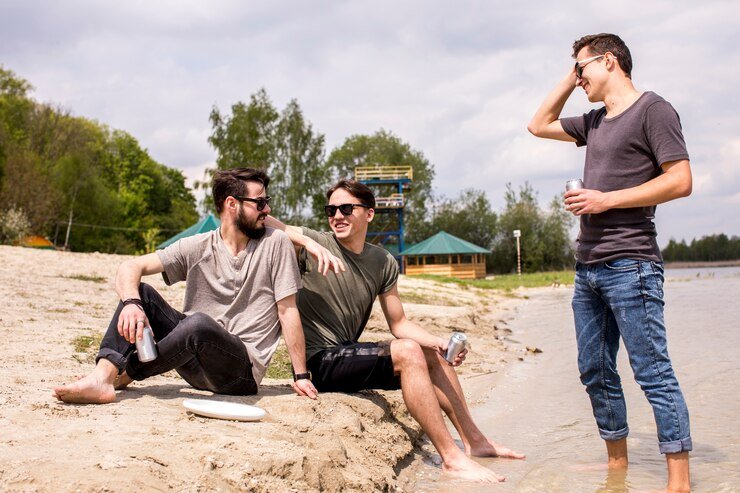Reality TV thrives on drama, but sometimes the action spills from the screen to real life—and not in the fun way fans expect. Recently, Love Island viewers have been swept up in a frenzy over the infamous Rob Love Island leak, which exposed unexpected secrets about one of the show’s contestants.
But what exactly happened, and what does this incident teach us about the interplay between social media, privacy, and reality TV? Whether you’re a die-hard Love Island fan or just curious about the chaos, this blog breaks down the leak, its fallout, and the larger lessons it offers.
What Happened in the Rob Love Island Leak?
Before digging into the details, it’s worth noting that Love Island has long been a powerhouse in reality TV, blending romance, competition, and a social media-fueled fanbase. Enter Rob, a standout contestant this season whose charm and charisma won over viewers. However, his time in the spotlight took a darker turn when personal details about his life were leaked online.
The Discovery of the Leak
The leak in question first surfaced on social media platforms like Twitter and Instagram, where anonymous accounts shared sensitive information about Rob. Allegedly, private messages, photos, and even details about past relationships were circulated widely. It’s unclear who originated the leak, but the viral nature of the posts ensured that the information reached thousands in no time.
The Immediate Fallout
For Rob: The leak had an emotional and reputational impact. This wasn’t just tabloid fodder—it involved deeply personal aspects of his life. Reports indicate that Rob was blindsided by the leak and found it difficult to continue filming under such intense public scrutiny.
For the Show: Producers scrambled to address the situation. Reality TV thrives on drama, but this crossed ethical lines. The incident raised questions about contestant safeguards, and fans began demanding a more proactive stance on protecting participants’ privacy.
Viewer Reactions: Fans were split. Some expressed outrage over the invasion of Rob’s personal life, rallying around him with hashtags like #JusticeForRob. Others were, unfortunately, quick to engage with and share the leaked information, deepening the issue.
Social Media’s Role in the Leak
If there’s one factor that turned the Rob Love Island leak into a major controversy, it’s social media. Platforms like Twitter, Instagram, and TikTok are fertile ground for reality TV discussions, but they also amplify controversies to massive levels.
The Amplifying Machine
What could have been a small-scale dispute exploded thanks to the viral nature of the internet. Within hours of the initial leak, hashtags and memes flooded timelines. Social media’s immediacy allowed users to share and comment without pausing to consider ethical implications, spreading the leak further and faster.
Social Media and Reality TV
Social media has long been intertwined with reality TV success. It engages fans, creates buzz, and builds personal brands for contestants like Rob. But it’s also a double-edged sword. Contestants can find themselves at the mercy of cancel culture, invasive viral trends, and, as in Rob’s case, personal attacks amplified on a global stage.
This raises critical questions about the balance between fans’ desire for connection and the need to respect the boundaries of contestants’ privacy.
Privacy, Ethics, and the Love Island Leak
The Rob Love Island leak puts several key ethical dilemmas under the microscope. At the heart of the issue is a question many fans and media organizations must ask themselves: Where is the line between public interest and personal privacy?
The Ethics of Sharing Information
The information leaked about Rob had little to do with the show’s narrative. Sharing it didn’t add value but instead acted as an invasion of privacy. Ethical considerations include:
- Consent: Rob didn’t agree to having his personal life shared on a global scale. While being on Love Island means accepting public scrutiny, it doesn’t mean forfeiting all personal boundaries.
- Responsibility: Content creators and social media users bear a responsibility to verify and question what they’re sharing. Just because information is available doesn’t mean it should be disseminated.
Contestant Safeguards
This incident also raises concerns about how reality TV shows protect their stars. While Love Island producers have rules in place to prevent exploitation on the show, it’s worth examining whether they’re doing enough to shield contestants from outside harm—especially on social media.
What Lessons Can We Learn?
The Rob Love Island leak is troubling, but it offers an opportunity for reflection—for producers, fans, and contestants alike.
For Contestants
Aspiring reality TV stars like Rob must be increasingly mindful of their digital footprints. Privacy settings, cautious sharing, and understanding that personal moments could be weaponized by strangers are essential in today’s media landscape.
For Fans and Social Media Users
Fans should remember that reality TV characters are real people with real lives. Before clicking “share” on leaked information, ask yourself:
- Does this content respect the person’s privacy?
- Would I want something similar shared about me?
For Producers
Reality TV shows like Love Island should reexamine their contestant safeguards. From offering media training and legal advice to providing emotional support post-show, the industry must adapt to the digital era’s challenges.
Why This Matters to the Reality TV Community
The Rob Love Island leak reminds us that while reality TV offers entertainment, the stars we adore are humans first. Respecting their privacy and dignity doesn’t diminish the fun of the show—it enhances it by fostering a healthier environment for everyone involved.
Love Island producers have since promised to look into more robust safety nets for their contestants. But the real power lies with us, the audience. By engaging responsibly on social media, we can create a space where reality TV stars aren’t punished for success.
For fans navigating this evolving landscape, one thing is clear—it’s time to rethink how we balance our love for drama with a commitment to ethics.
